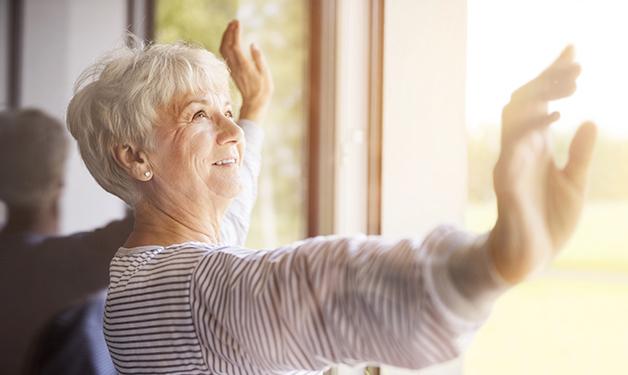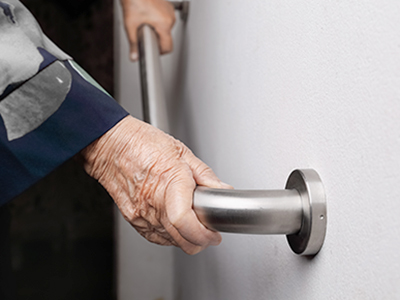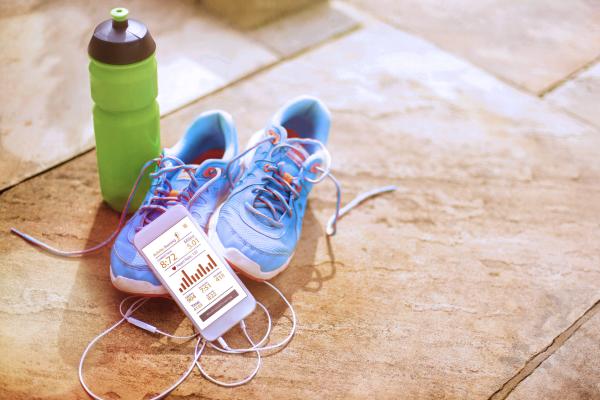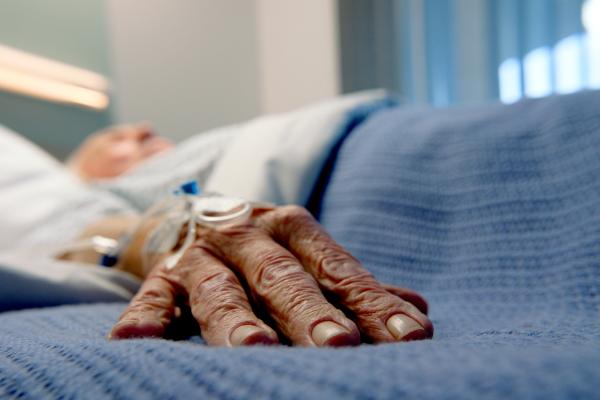
News Release | Study finds in-home exercise program reduced fall rate in high-risk seniors.
An in-home exercise program reduced subsequent falls in high-risk seniors by 36 per cent, according the results of a 12-month clinical trial published today in the Journal of the American Medical Association.
The study, conducted by UBC faculty of medicine researchers in partnership with the clinical team at the Falls Prevention Clinic at Vancouver General Hospital, found a reduction in fall rate and a small improvement in cognitive function in seniors who received strength and balance training through the clinical trial.
“When we think about falls we often think about loss of muscle strength and poor balance,” said Dr. Teresa Liu-Ambrose, principal investigator at the Vancouver Coastal Health Research Institute and professor in the department of physical therapy at the University of British Columbia. “However, the ability to remain upright and not fall is also dependent on cognitive abilities—calculating how far to lift your foot to get over a curb, making a decision as to when to cross the road, and paying attention to your physical environment while you are having a conversation.”

Falls increase risk of injury and loss of independence for older adults. Exercise is a widely recommended fall prevention strategy, but whether it can reduce subsequent falls in those who have previously fallen is not well established.
The study involved 344 adults aged 70 and older who had been referred to the Falls Prevention Clinic following a fall that had resulted in a visit to a medical facility, such as an emergency room. Participants had a history of falls, with an average of three prior falls per person, and generally had symptoms of frailty and limited mobility.
The study had participants perform a set of balance and resistance training exercises in the comfort of their homes, using simple equipment such as free weights, a minimum of three times per week. Over the course of six months, a physical therapist made five home visits to prescribe exercises and ensure that exercises were done properly. For those who completed the program, the results were notable. Participants were less likely to experience repeat falls, and as a secondary benefit, they improved in some markers of cognitive function.

“It is well known that exercise benefits older people in general, but what was special about this study group was that they are at very high risk for losing their independence—they had both mobility and cognitive impairments and another fall may mean the inability to live in their own homes. Many already had difficulty navigating public spaces independently,” said Liu-Ambrose, who holds a Canada Research Chair in Physical Activity, Mobility, and Cognitive Neuroscience.
“Older adults who experience falls that require medical attention falls are medically complex and at high risk for both morbidity and mortality, and we demonstrated that exercise is a practical and cost-effective intervention that can improve older peoples’ outcomes after a significant fall,” she added.
Liu-Ambrose and her team at the Centre for Hip Health and Mobility are now looking at whether the exercise program resulted in reduced health care utilization and medical cost savings in this high-risk population.


